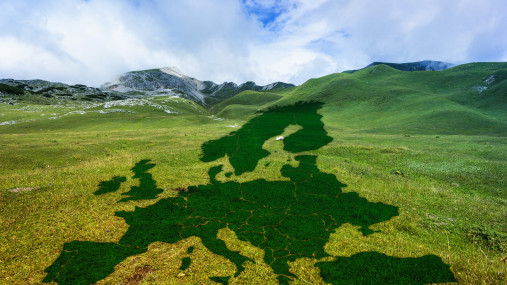
Downloads and links
Download files or visit links related to this content
Issues » Climate and energy » A Green Deal on Steel
A Green Deal on Steel
Policy collection: A Green Deal on Steel
Policy collection: Ensuring competitiveness throughout the climate transition, and beyond
Policy collection: Fair international trade for industry
Policy collection: Sustainable products and the circular economy
Downloads and links
Recent content
Europe has the opportunity before it to lead the transformation of its economy to a future in which it is carbon-lean, environmentally responsible, circular and able to compete internationally. Steel is central to the EU economy, and it underpins the development of major manufacturing sectors right along the value chain.
European steel’s transition to carbon-lean, ‘green’ steel requires a fundamental change in the way steel is made, because our current processes are already at the technical and thermodynamic limits.
The breakthrough technologies that we need mean using hydrogen and renewable electricity to produce steel; they also mean capturing and either storing or using carbon that is emitted to bring the environmental footprint of our production as close to zero as possible.
The technical demands are enormous: our sector alone will require 400 terawatt hours of renewable electricity, of which 250 terawatt hours for the production of 5.5 million tonnes of hydrogen. This is the same as the current electricity demand of Germany, and this quantity will be needed every year from 2050 at the latest.
The capital and operating costs of this change are extreme, numbering in the multi-billion-euro range. Per tonne of steel produced, costs could be from 35 to 100 percent higher. This is why our transition to a carbon-lean future relies so heavily on the right conditions being in place, and why we need a ‘Green Deal for Steel’.
With supportive conditions in place, notably the right infrastructure and a supportive regulatory framework, the European steel industry will be empowered and fully committed to the EU’s climate objectives and sustainable growth targets. The sector would be able to develop, upscale and roll-out new technologies that could reduce EU steel production’s CO2 emissions by 30% by 2030 and by 80 to 95% by 2050, while contributing to greenhouse gas mitigation across all sectors.
Brussels, 04 February 2025 – The European Steel Association (EUROFER) supports the demonstration of thousands of industry workers taking place tomorrow, 5 February, in Brussels, organised by industriAll Europe. Steel workers from across the EU will join workers from other manufacturing industries to call on the European Commission to save our industry and preserve employment by investing in good industrial jobs and the transition, while combating global overcapacity and unfair trade.
Statement
Brussels, 27 November 2024 – The European steel industry is at a critical juncture, facing irreversible decline unless the EU and Member States take immediate action to secure its future and green transition. Despite repeated warnings from the sector, the EU leadership and governments have yet to implement decisive measures to preserve manufacturing and allow green investments across Europe. Recent massive production cuts and closure announcements by European steelmakers show that time has run out. A robust European Steel Action Plan under an EU Clean Industrial Deal cannot wait or manufacturing value chains across Europe will simply vanish, warns the European Steel Association.